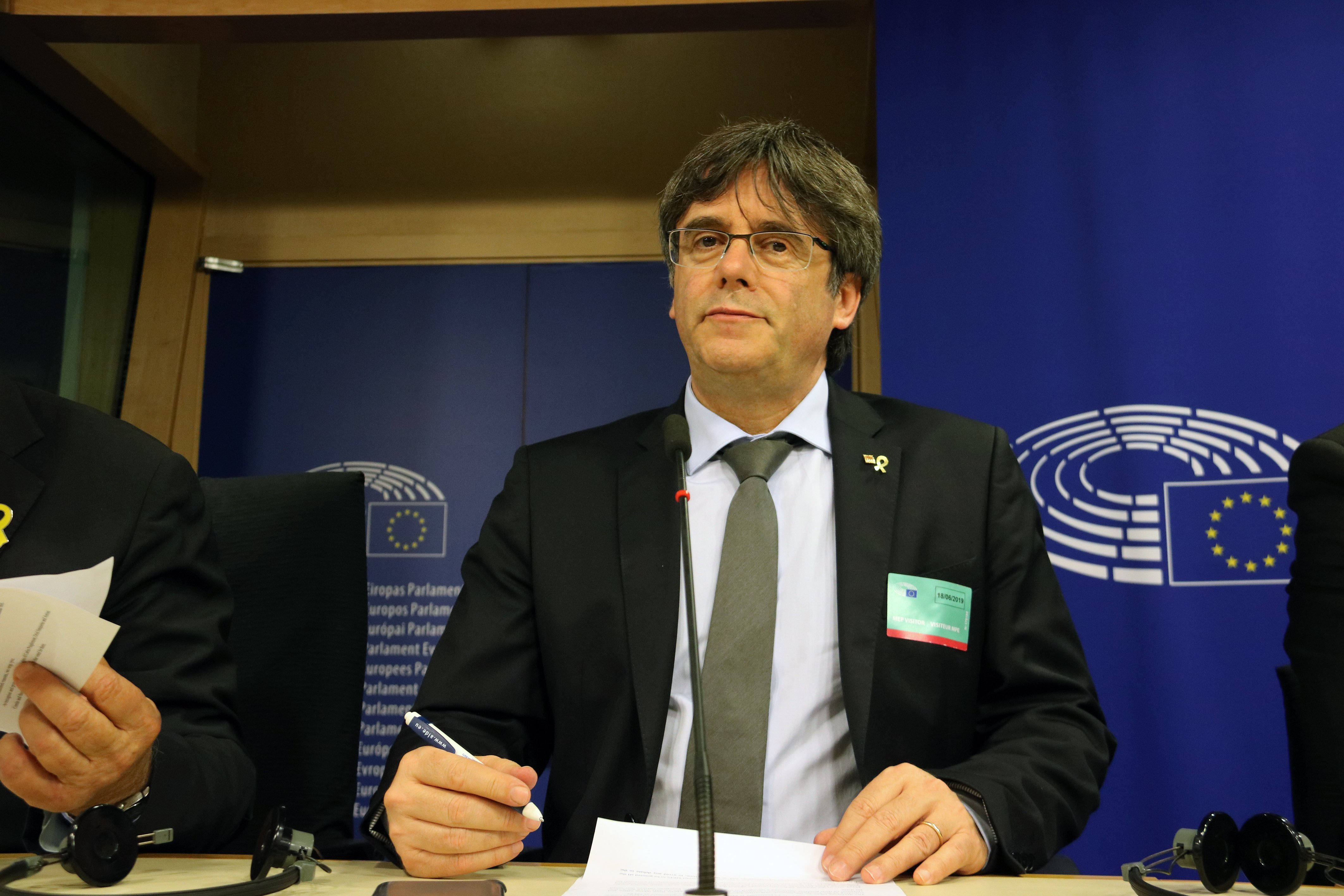Former Catalan president Carles Puigdemont has confirmed he will attend the opening of the European Parliament in Strasbourg on 2nd July, his first visit to France since going into exile. That day, there has already been organised a protest outside the Parliament in favour of the right to self-determination and the release of the pro-independence prisoners.
In a press conference in Brussels today, he also said that he will appeal to the Court of Justice of the European Union to be able to take his seat as an MEP. They went into no details about the presentation of their complaint to the court in Luxembourg, but expressed confidence it will have the "final word" in the matter. Yesterday, Spain's Central Electoral Commission rejected the attempts by lawyer Gonzalo Boye to satisfy the requirements for Puigdmont and former minister Toni Comín to be accredited as MEPs.
🔴 En directe:#president @KRLS Puigdemont: "El 2 de juliol estaré a Estrasburg a la constitució del Parlament Europeu" pic.twitter.com/Gda2p2LJcM
— Aleix Clarió 👨💻 (@aleixclario) 18 de juny de 2019
The leader of JxCat said that they hope to have "a decision before 2nd July", the day of the opening of the new legislature in the Parliament. "It's inconceivable that we shouldn't be at the inaugural session on 2nd July," said the president today. He added that "nobody" will go to Strasbourg in place of him, Comín or imprisoned former vice-president Oriol Junqueras. He also said he believes "strongly" in the court's "independence and strong commitment to democracy".
Paths to the court
EU citizens and businesses can only present complaints to the Court of Justice directly if an EU institution, for example the Parliament or the Commission, has taken a decision which directly affects them. This does, however, include situations where the inactivity of an EU institution has harmed them. In that case, they first have to call for the institution in question to act, then they can turn to the court.
The other path to the European court is referring to it through a national court for a preliminary ruling. Any court in any member state can, if it feels it requires a decision on a question of EU law in order to give its own judgement, turn to the court. Further, "where any such question is raised in a case pending before a court or tribunal of a Member State against whose decisions there is no judicial remedy under national law, that court or tribunal shall bring the matter before the Court".
Urgent procedure
When the court admits a case for consideration it can, if it believes it to be appropriate, decide for it to go through an accelerated procedure which can take between two and four months to give an answer. There also exists an option for the court to give a "provisional ruling" if it believes it necessary.

